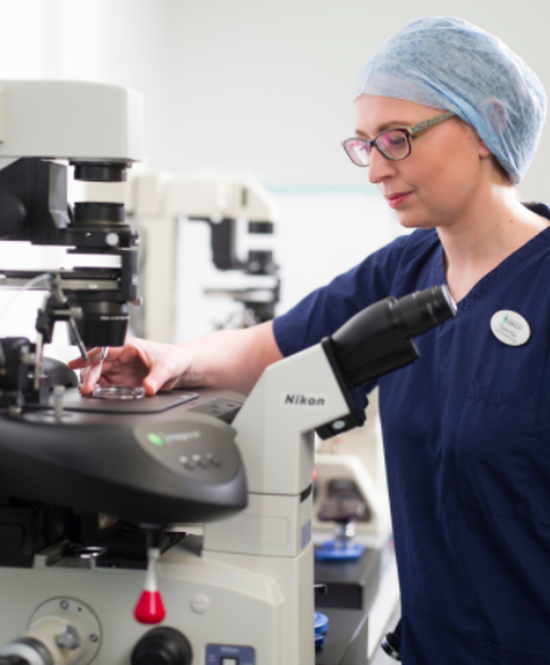
If you are a patient starting out on your In Vitro Fertilisation (IVF) journey, the first stage is exciting, if not a little daunting – after all, there's so much to take in. As you start to find out what's involved in your fertility journey, understanding the medications involved is crucial. This quick guide looks at IVF medications in the UK, providing you with essential information on 'what's what' with IVF medications.
IVF involves a carefully designed series of medications to regulate a woman's menstrual cycle, stimulate egg production, and support embryo implantation. Fertility drugs are typically administered through injections, so it's essential to familiarise yourself with the process.
So, what medications are used in IVF? In a typical IVF cycle, a few different fertility drugs are used, of which there are many different brand names. Here's a quick guide to what these drugs actually are, how they are administered and what they do.
Oral contraceptives
It may seem strange to start IVF by taking oral contraception, but this may be initially used to help us regulate and control your cycle.
Down regulation drugs (such as Prostap or Buserelin)
To get the multiple mature eggs we need for IVF, some patients need help to supress your own natural ovarian function. We do this using a medication that 'switches off' natural ovulation and hormones, known as down regulation, so that the medications for successful follicle growth to work properly.
These medications are administered daily through self-injection under the skin, using precise doses tailored to you. The eggs we want to collect are in the follicles in the ovaries, so stimulating the follicles is a vital step in IVF.
Follicle Stimulating Hormones/Gonadotrophins (such as Gonal-F, Meriofert, and Ovaleap)
Now we can stimulate follicle growth using medications known as Gonadotrophins, which contain follicle-stimulating hormones.
These are also taken as subcutaneous or under-the-skin injections. We'll monitor you during this time, performing blood and ultrasound testing every few days so we can track follicle development.
GnRH (such as Fyremadel and Ganirelix )
In the short IVF protocol, we need to suppress ovulation during stimulation to grow the follicles to the optimum size before triggering the eggs ready for fertilisation.
hcG (such as Zivafert, Ovitrelle)
When scans and tests show your follicles are the right size, it's time for another medication. This is an injection of Human Chorionic Gonadotrophin, known as hCG. This medication triggers your eggs to go into a final stage of maturation, so they're ready for fertilisation through IVF. This injection is sometimes referred to as a 'trigger' injection.'
Progesterone (such as Cyclogest)
After egg collection, we use progesterone medication, which helps your womb lining to grow ready for embryo implantation and pregnancy. Progesterone medication, in conjunction with oestrogen, is also used if you're having frozen embryo transfer or using donor eggs to conceive.
IVF medication support
Don't worry about taking your IVF medications and getting the timing right. Our experienced nurses will go through injection teaching at the start of your IVF cycle alongside instructional videos on our patient app.
Our nursing team's advice will ensure you safely administer your IVF drugs at home, minimising risks and ensuring you receive the guidance and emotional support you need to achieve the best possible outcome. Trust in their expertise and guidance as you navigate your IVF treatment medication.
We're also at the end of the phone for help and advice anytime you need it – call us on 0161 300 2737 or if you want to book a free 1-2-1 Discovery Appointment with one of our New Patient Coordinators you can get started online.
Last updated: 4th April 2024







